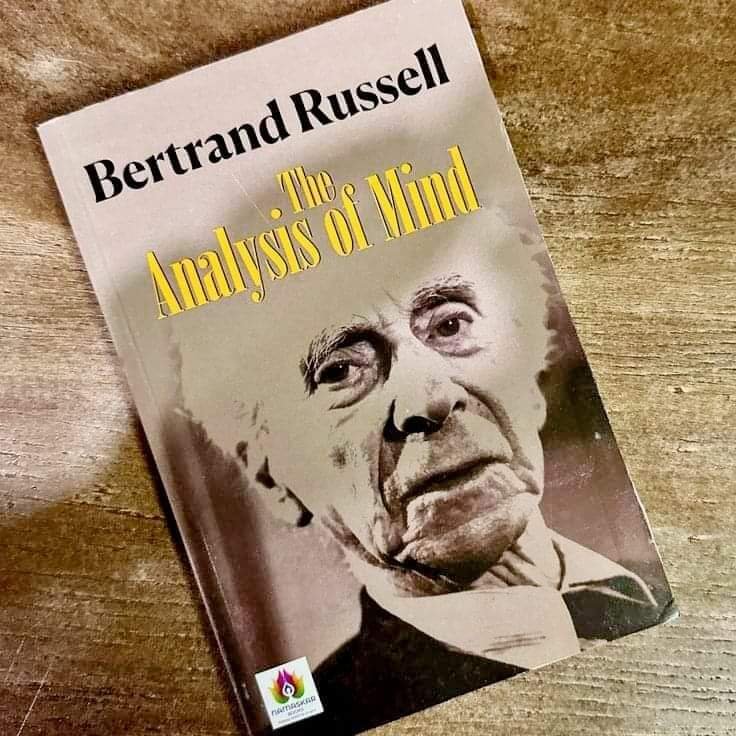#books
#psychology
The Analysis of Mind
by Bertrand Russell.
The book is a groundbreaking exploration of psychology, philosophy, and the nature of consciousness.
Russell blends insights from behaviorism, philosophical analysis, and neuroscience to investigate how the mind works.
1. The Mind and Body are Interconnected.
The mind cannot be separated from the body. He challenges the Cartesian notion of dualism and explores how mental phenomena are deeply rooted in physical processes. Thoughts, emotions, and consciousness are the result of interactions between the brain and the nervous system.
2. Perception is Not Reality.
What we perceive is not an exact copy of reality. Our perceptions are filtered through subjective experiences, influenced by sensory input and cognitive processes. Therefore, perception is a mental construction rather than a direct representation of the external world.
3. The Role of Memory in Shaping Consciousness.
Much of what we consider to be consciousness depends on our ability to remember past experiences. Memory allows us to link different moments together, creating the continuity that defines our sense of self and experience.
4. Emotion is Tied to Instinct and Behavior.
Emotions are responses to stimuli that have evolved for survival. Emotions influence our actions and decisions, and understanding their biological roots helps us comprehend why we feel and react in certain ways.
5. Language Shapes Thought.
Language plays a crucial role in how we think and conceptualise the world. Words are not merely labels for objects or ideas but are fundamental to the structure of thought itself. Language allows for abstract thinking and reasoning, which sets humans apart from other animals.
6. Consciousness is a Process, Not a Thing.
Consciousness is a dynamic process involving continuous mental events. Consciousness is not a “thing” that exists independently; it is an ongoing, fluid interaction of thoughts, perceptions, and feelings.
7. Behaviorism and the Study of Mind.
While behaviorism has limitations, it offers valuable insights into understanding the mind by studying the correlation between external actions and internal mental processes.
8. Knowledge is Built on Sensory Experience.
All knowledge begins with sensory experience. Our understanding of the world is constructed from the data we receive through our senses, but this knowledge is not infallible. We constantly interpret, re-interpret, and organize sensory information, meaning our knowledge is always evolving.
9. The Illusion of Free Will.
Our choices are influenced by previous experiences, external stimuli, and psychological conditioning. Although we may feel as though we are making independent decisions, much of our behavior is determined by factors outside of our conscious control.
10. Mind as a Collection of Events.
Mind is better understood as a series of events or occurrences. These events include perceptions, emotions, thoughts, and memories. The mind is not a substance but a series of interconnected occurrences that create the experience of being conscious.
The Analysis of Mind provides a philosophical and scientific examination of the complexities of human thought, perception, and consciousness. Consciousness is not a singular entity but a dynamic process shaped by sensory experiences, language, memory, and instinct. Russell’s work remains an influential and thought-provoking exploration of the nature of human cognition and psychology.

